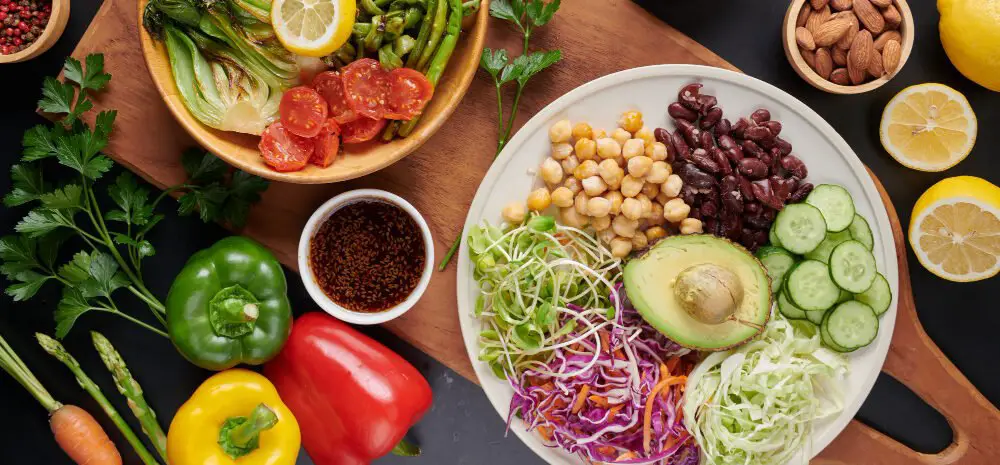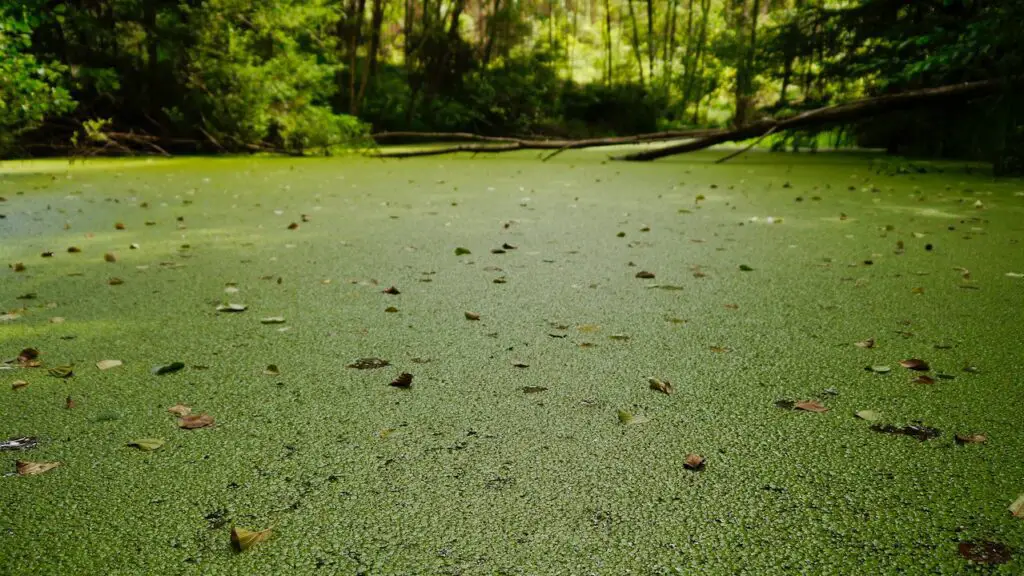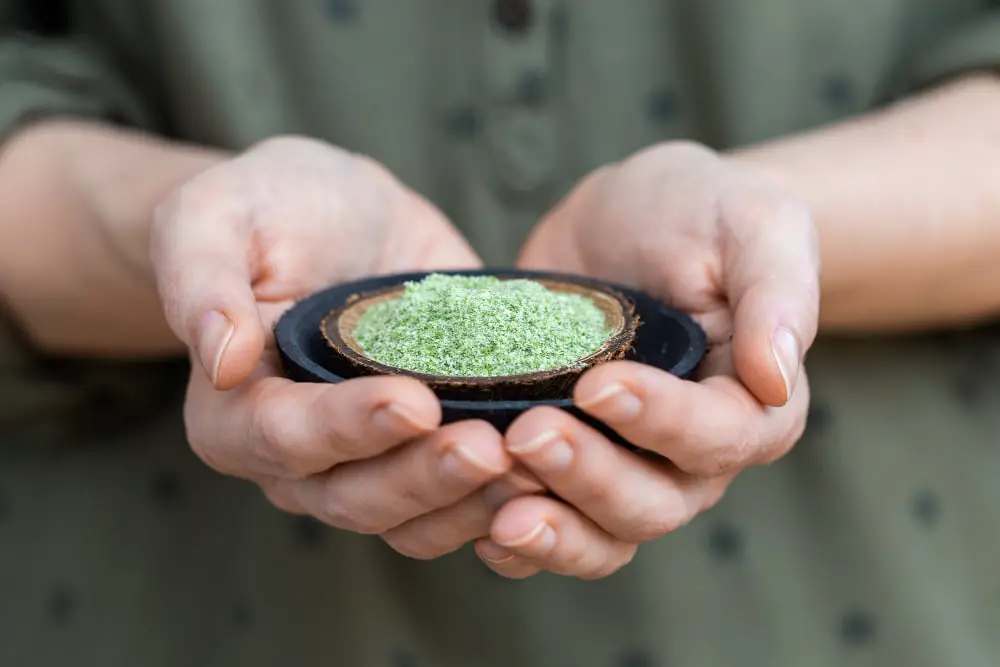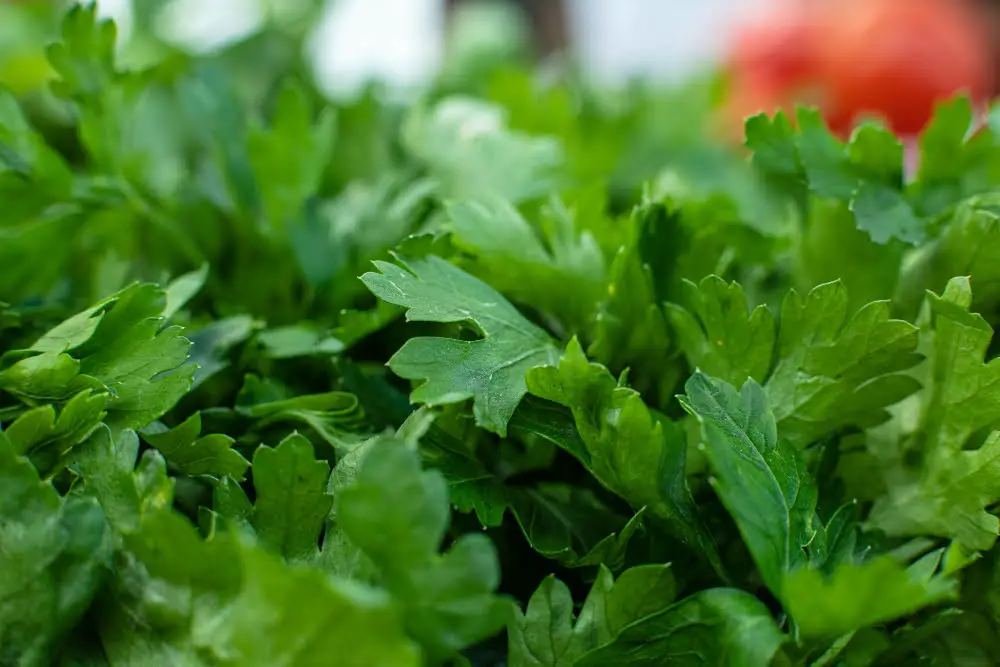Multiplying rapidly and spreading from pond to pond, completely blocking sunlight for fish and other plants living inside, duckweed(Wolffia globosa) is a real headache for pond owners as they have to spend much money and time to clean them and prevent them from spreading. But hold on, here is some good news about this notorious plant. Researchers in recent studies have unveiled the potential health benefits of duckweed for human beings. Being highly sustainable, fiber-rich, and loaded with nutrients, this aquatic plant can be considered a future superfood because it is the only plant source that contains all nine essential amino acids we need.
The fantastic nutritional benefits of duckweed have given it a common name as ‘vegetable meatball’ and ‘water egg’ (in Thailand). This aquatic plant has been consumed for many years in Southeast Asian countries as soups and salads for its proteins and omega-3 fatty acids. Hinoman, an Israeli company, has patented the Mankai strain of this aquatic plant, which has a minimal environmental impact, better productivity, and less water and light requirement. So here are the thirteen reasons to advocate for this superfood in your diet.
Health benefits of Duckweed


For a healthy gut microbiome
Duckweed health benefits are many as it contains about 200 polyphenols or antioxidant compounds that are beneficial for restoring and promoting a healthy microbiome in the gut. In a research, it was found that these compounds positively influenced gut health. It is also high in dietary fiber content, making it ideal for a healthy gut, as a high-fiber diet helps prevent digestive disorders like constipation, bloating, and diarrhea.
For stamina and muscle strength.
Duckweed is the only plant that contains all the nine essential amino acids and thus is a whole protein. Mankai has 45% dry-weight protein, similar to a chicken egg. The bioavailability or absorption of these amino acids is very high and comparable to pea and meat protein absorption, making it a meat substitute. So this aquatic plant can be an excellent food for athletes to repair and strengthen skeletal muscles and connective tissues after an intense workout. It helps them to increase their stamina to desired level.
Heals nervous system
As vitamin B12 is not found in any plant food in adequate amounts, vegetarians and vegans are often deficient in vitamin B12 or dependent on supplements for its adequacy. Vitamin B12 is required for maintaining a healthy nervous system. Vitamin B12 is the essential nutrient necessary for producing the hormones serotonin and dopamine, which are mood-elevating neurotransmitters. Duckweed, rich in vitamin B12, helps nerve regeneration and prevents depression and anxiety. Its vitamin B12 is highly bioavailable and assimilable in our bodies.
Cures anemia
Anemia is accompanied by weakness, shortness of breath, headache, and fatigue. It is mainly caused because of deficiency of iron and folic acid. This aquatic plant, being naturally rich in iron and folate, replenishes these deficiencies.
Boosts immunity
Duckweed is naturally rich in zinc and vitamin A, which boosts immunity. Life can only be enjoyed if our immune system can fight bacteria and viruses. So including mankai in the diet, one can be assured of the body’s good defense mechanism.
Good for cardiovascular health
Abdominal or visceral fat is directly linked with heart disease and hypertension. Researchers at Leipzig University notice that certain Mediterranean diet, including green tea, walnuts, and duckweed, considerably reduces the piling up of visceral fat. This way, it also helps in speedy weight loss.
Helps in diabetes management
Duckweed helps maintain blood sugar levels and is very helpful in diabetes. In a controlled trial, it was found that participants who took its shake for two weeks showed a better response in various measurements, including lower glucose peak levels, morning fasting glucose levels, later peak time, and faster glucose evacuation.
Nutritional benefits of Duckweed
Following are the duckweed nutritional facts:


High protein content
Duckweed has high protein, with dry weight ranging from 20% to 45%. The amino acid distribution is close to the WHO recommendations having 4.8% lysine, 2.7% methionine and cysteine, and 7.7 phenylalanine and tyrosine. This aquatic plant can produce up to 20 times more high-quality edible protein per cultivation area than soybeans.
Low-fat and carbohydrate content
The fat contained in duckweed ranges from 4% to 7% per dry weight. The carbohydrate content in starch ranges from 4% to 10% for dry weight. It has a high Poly unsaturated fatty acid that ranges between 48% and 71%. According to FAO the Food and Agricultural Organization, the ratio of Omega 6 to omega-3 fatty acids should not be higher than five, is found to be less than one in duckweed.
A high fiber content
The fiber content of duckweed was found to be high, about 26% of dry weight. This high dietary fiber content is very helpful in improving the Western diet through low-energy food components.
Rich in carotenoids and vitamin E
Duckweed is found to have high levels of carotenoids and vitamin E, which is very important for controlling age-related degeneration in the eyes. So its consumption can keep eyes healthy.
Rich in minerals
It is rich in minerals like potassium, iron, manganese, zinc, selenium, and iodine, making it suitable for healthy human nutrition.
Rich in phytosterols
Phytosterols are natural plant compounds that help to lower cholesterol levels in our body, thus decreasing the risk of cardiovascular diseases. Duckweeds are rich in phytosterols such as sitosterol, campesterol, and stigmasterol.
duckweed shake recipe
With so much of nutritional and health benefits, it becomes a “must-have” nourishing food to be included daily in our diet. The easiest way to have it Is in the form of a shake in the morning. With energizing and filling properties, this shake can be prepared as follows:
For 3 servings
Preparation time: 5 minutes
Ingredients:
2 cup water
1/2 Cup duckweed
1 Cucumber
1 Stalk of celery
Blend all these ingredients in a blending jar to make a nutritious and tasty duckweed shake.
Side Effects
To date, its side effects are unknown, but pregnant and breastfeeding women are advised not to consume it to stay on the safer side.
Concluding remarks
The use of expensive fruits and vegetables as a means to achieve good health is a common misconception that perpetuates a societal divide. Many individuals of the lower class and those experiencing financial hardship simply cannot afford these luxuries. However, duckweed offers a solution. This plant contains nearly all of the same essential nutrients as fruits and vegetables, and even more. By promoting awareness of its benefits, duckweed can become a more accessible option for individuals of all classes to meet their nutritional needs.
FAQ
Is duckweed a sustainable food?
Yes, it is a sustainable food as it provides nutrition-rich food without creating any significant damage to air, water, land, soil, etc.
Is duckweed high in vitamin B12?
Processed duckweed powder is high in Bioactive vitamin B12, which makes it a suitable healthy and sustainable vitamin B-12 source for vegetarians as vegetarian diets are deficient, particularly in vitamin B-12.
Hope you find this post useful!
If you want to read more of our content, please visit our blog
Featured Photo by Blue Moon on pexels
DISCLAIMER – The tips provided are for informational purposes only and do not constitute professional advice.




